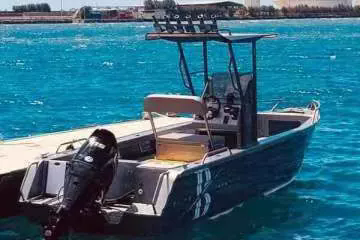Considerations for Choosing a Travel Boat
2024-07-18
Choosing a travel boat involves several considerations to ensure it meets your needs for leisure, transportation, or living aboard. Here are key factors to consider:
1. Purpose of Use:
- Leisure Travel: If you plan to use the boat primarily for leisurely cruises, consider comfort features such as cabins, lounges, and entertainment systems.
- Transportation: For transportation, especially in coastal or island regions, prioritize speed, fuel efficiency, and durability to handle various weather conditions.
- Living Aboard: If you intend to live aboard the boat, look for spaciousness, amenities like kitchens and bathrooms, and long-term comfort features.
2. Type of Boat:
- Yachts: Luxurious vessels for long-range cruising with amenities such as cabins, kitchens, and entertainment systems.
- Cruisers: Larger ships suitable for ocean or river cruises with facilities like dining areas, cabins, and entertainment venues.
- Houseboats: Floating homes often used for leisurely travel or permanent residence on lakes, rivers, or canals, featuring living quarters and essential amenities.
- Speedboats: Small, fast boats ideal for water sports, short-distance travel, or recreational activities like water skiing and fishing.
- Sailboats: Wind-powered vessels suitable for competitive sailing or leisurely cruising, available in monohull or multihull designs.
3. Size and Capacity:
- Passenger Capacity: Determine how many people the boat needs to accommodate comfortably, considering guests and crew if applicable.
- Storage Space: Assess storage needs for personal belongings, supplies, water sports equipment, and safety gear.
4. Navigation Area:
- Waterway Compatibility: Ensure the boat is suitable for the intended waterways—ocean, lake, river, coastal areas, or specific regions with depth and clearance considerations.
- Draft: Consider the boat's draft (the depth of water it needs to float) to navigate shallow waters or specific harbors.
5. Features and Amenities:
- Comfort: Look for amenities such as cabins, bathrooms, kitchens, air conditioning, and heating to ensure comfort during travel or residence.
- Entertainment: Evaluate onboard entertainment options like TVs, stereos, and internet connectivity for leisure activities.
- Safety Equipment: Ensure the boat is equipped with essential safety gear such as life jackets, fire extinguishers, and navigation lights.
6. Budget:
- Purchase Cost: Consider the initial cost of the boat, factoring in new versus used options, as well as any customization or upgrades needed.
- Operating Expenses: Include ongoing costs such as maintenance, fuel, insurance, docking fees, and potential financing.
7. Maintenance Requirements:
- Time and Skills: Evaluate your ability and willingness to perform routine maintenance tasks or hire professionals for upkeep.
- Materials and Build Quality: Choose boats made from durable materials and with reliable construction to minimize maintenance needs and ensure longevity.
8. Resale Value and Depreciation:
- Market Trends: Research resale values and depreciation rates for different boat types and brands to understand long-term financial considerations.
9. Lifestyle and Preferences:
- Personal Preferences: Consider your lifestyle and preferences regarding travel style, destinations, onboard activities, and community interactions in marinas or yacht clubs.
10. Regulatory and Legal Compliance:
- Registration and Licensing: Understand regulatory requirements for boat registration, licensing, safety inspections, and compliance with environmental regulations.
By carefully evaluating these factors, you can make an informed decision when choosing a travel boat that aligns with your needs, preferences, and budget for enjoying time on the water.



